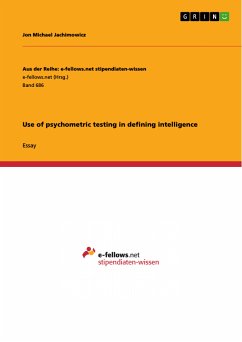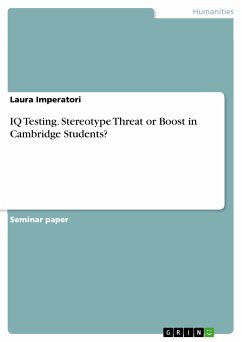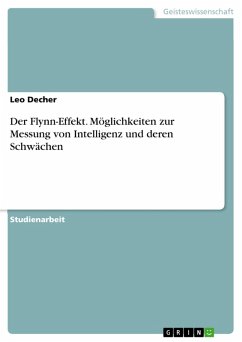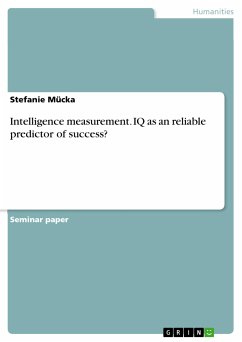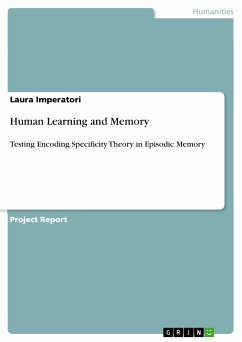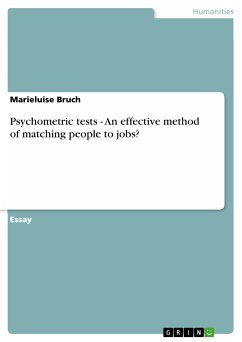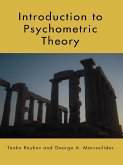Essay from the year 2012 in the subject Psychology - Intelligence and Learning Psychology, grade: 20, University of St Andrews, language: English, abstract: Researchers widely disagree on a common definition of intelligence (Sternberg & Berg, 1986), conceptually describing it as "a general capacity for inferring and applying relationships drawn from experience" (Herrnstein & Murray, 1994), emphasizing that "it is not merely book learning []; [it is] a broader and deeper capability for comprehending our surroundings []" (Gottfredson, 1997). In stark contrast are more operational definitions based on psychometric intelligence measures, such as "Intelligence is what the tests test" (Boring, 1923), or "a person's score on a statistically determined set of questions" (Herrnstein & Murray, 1994). Although having supported the theoretical development of intelligence, psychometric tests have been criticized for their over-simplification, inaccuracies and potential misuse (Nisbett et al, 2012). This essay will focus on evaluating potential benefits and drawbacks of using psychometric intelligence tests to help define intelligence, concentrating on the most dominant 'IQ' test, for which the bulk of evidence exists. [...]
Dieser Download kann aus rechtlichen Gründen nur mit Rechnungsadresse in A, B, BG, CY, CZ, D, DK, EW, E, FIN, F, GR, HR, H, IRL, I, LT, L, LR, M, NL, PL, P, R, S, SLO, SK ausgeliefert werden.

